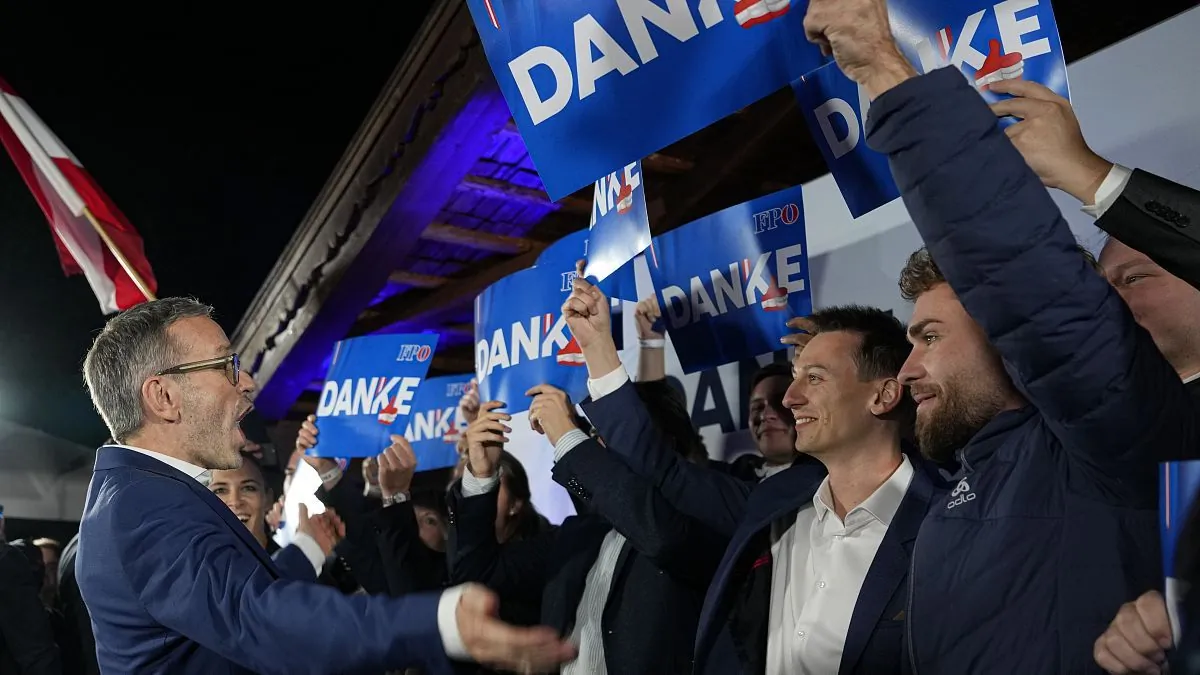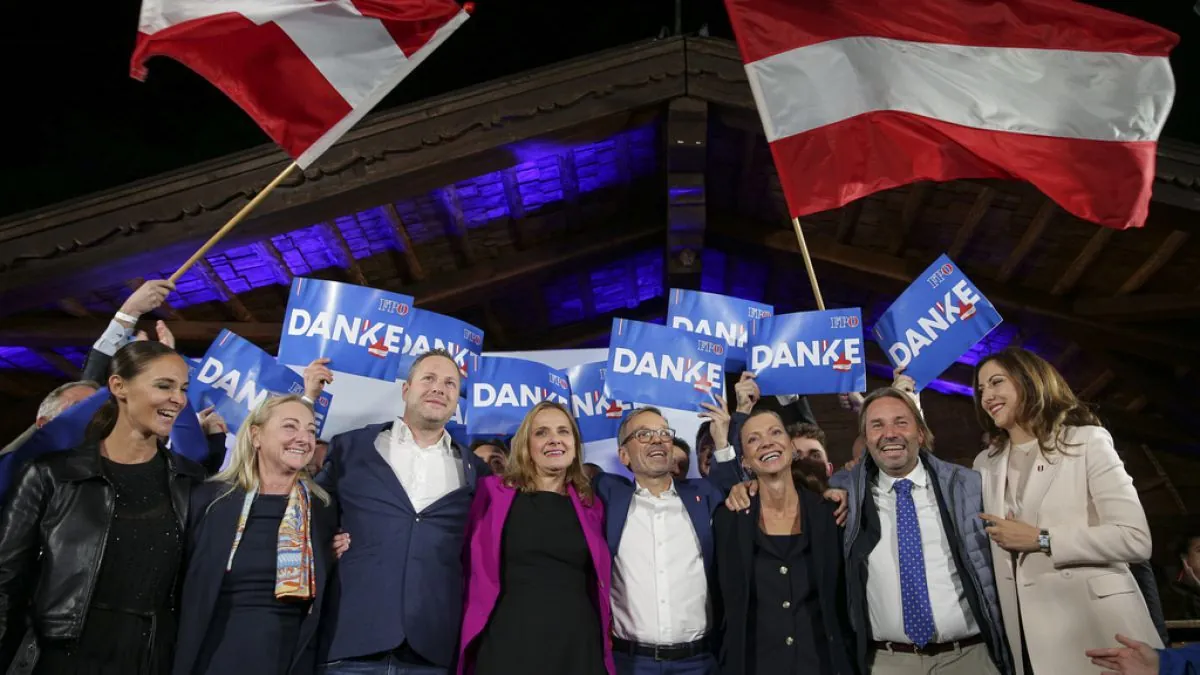Austria's Far-Right Surge: Freedom Party Wins Election Amid European Shift
Austria's Freedom Party secures 29% in general election, reflecting a broader right-wing trend across Europe. The party's success raises concerns about the normalization of extreme politics in the EU.

In a significant political shift, Austria's Freedom Party emerged victorious in the country's general election on September 29, 2024, securing 29% of the vote. This outcome aligns with a broader trend of far-right parties gaining ground across Europe, including recent successes in eastern Germany and the Netherlands.
Herbert Kickl, the Freedom Party's leader, has drawn criticism for his use of terminology reminiscent of Nazi-era language, such as calling for a "Volkskanzler" (people's chancellor). The party's platform includes stringent anti-immigration policies, plans to expel certain Austrian citizens with foreign roots, and opposition to what Kickl terms "gender madness" and "climate communism."
The Freedom Party's rise to prominence is not without precedent in Austrian politics. In 2000, it broke the country's long-standing pattern of conservative-social democratic leadership by joining the government. This move initially sparked controversy and EU sanctions, but by 2017, the party's return to government was met with less resistance.

The COVID-19 pandemic played a crucial role in the Freedom Party's resurgence. As the sole critic of pandemic-related restrictions, the party capitalized on public discontent with lockdowns and vaccine mandates. When Austria made vaccination compulsory in late 2021, Kickl declared the country a "dictatorship," boosting the party's popularity.
Austria's political landscape has undergone a significant transformation. Andreas Kranebitter, director of the Documentation Center of Austrian Resistance, notes that racism, antisemitism, and anti-immigrant sentiment are at their highest levels in recent decades. The Freedom Party has not only tapped into these sentiments but has also actively shaped them.
Ulf Brunnbauer, an Austrian historian, argues that the Freedom Party's success is not merely a protest vote but reflects a deeper ideological shift in Austrian society. The party has invested in propaganda, built an alternative media ecosystem, and engaged in local governance, effectively transforming Austria's political culture.
The traditional conservative Austrian People's Party has responded to this shift by adopting increasingly hardline stances on immigration. However, this strategy has not prevented the loss of support to the Freedom Party.
"Our aspiration is a social welfare system for those who can't work—not for those who don't want to."
The Freedom Party's success in Austria may serve as a blueprint for other far-right parties across Europe, demonstrating that even previously discredited ultraright parties can significantly influence national politics.
As Austria grapples with this political shift, it's worth noting that the country, with its rich cultural heritage and strong economy, faces complex challenges. With a population of about 9 million and a history of immigration resulting in 19% of its residents having foreign roots, Austria must navigate these political changes while maintaining its position as a leader in areas such as environmental policy and quality of life.
The implications of this election extend beyond Austria's borders, potentially influencing the trajectory of right-wing politics across the European Union. As the continent watches, the question remains: will other EU members follow Austria's lead, or will this mark a turning point in the ongoing debate about the future of European politics?


































